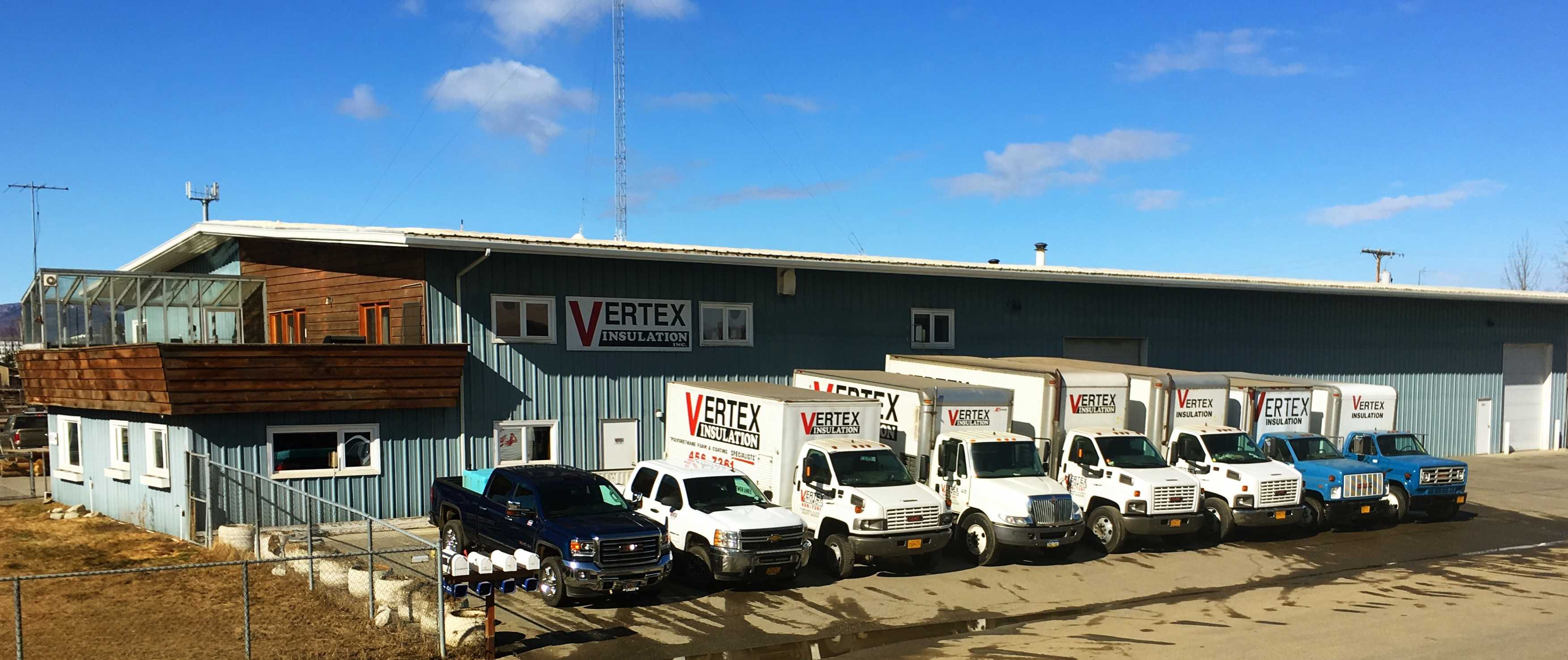About Vertex Insulation Inc.
The Story of the Rocheleau FamilyThe Rocheleau family Fairbanks roots dip almost as deep as the miles of underground utility pipe their company has encapsulated in insulation since inception of Vertex Insulation Inc. over 40 years ago.
How has Vertex Insulation become the #1 polyurethane spray foam insulation provider in the interior?
A quote from the company president:
“We have been able to stay ahead of our competition by having enough trucks, equipment and people to be able to man 5-6 projects at the same time.”
As the recipient of The Industry Excellence Award by the Spray Polyurethane Foam Alliance in 2010, Vertex keeps innovating ways to keep homes as energy efficient as they can possibly be.
But it wasn’t always like this…
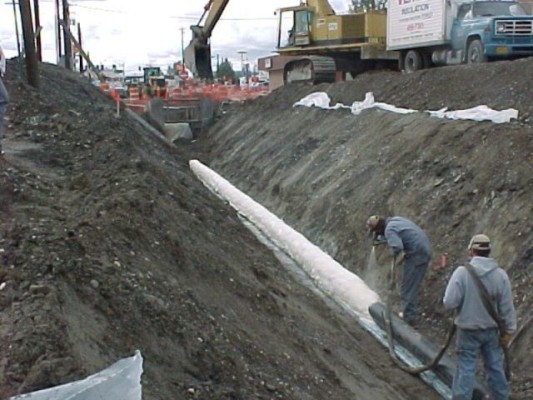
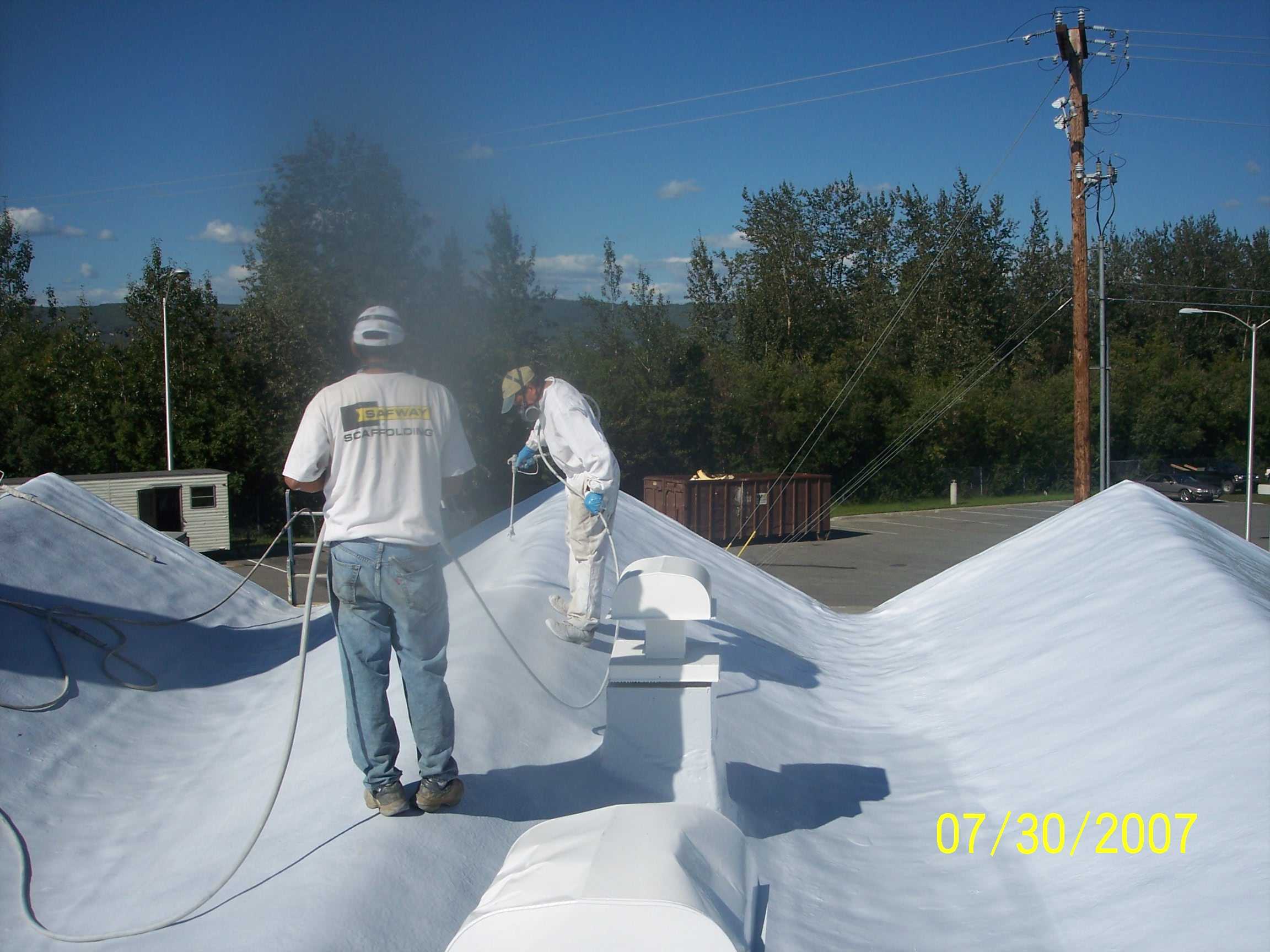
The Rocheleau Family Business Story
Born and raised in Fairbanks, Rocheleau sons Rick, Ron and Rory hold the key positions in the insulation and specialty coating contracting business based in Fairbanks. Mom, Shirley worked in the office over 20 years and has since retired.
Rick Rocheleau assumed the helm as president when family patriarch Robert Rocheleau passed away in 1991. But it’s the business values the father instilled in his sons that elevated Vertex to the largest and most reputable insulation company in Interior Alaska.
“Take care of that contractor,” said Rick, recalling his father’s mantra. “My dad drilled that into us kids a long time ago.”
Robert Rocheleau first came Fairbanks in 1952. In 1954 he took a job as a truck driver for Seattle-based Vermiculite Contractors on projects at Fort Wainwright and Eielson Air Force Base, with the business philosophy of hard work and taking care of the customer he worked his way up to general manager.
Vermiculite is a lightweight product commonly found in potting soil. Used in combination with concrete or asphalt, vermiculite was used extensively for insulation purposes in the 1950s and 1960s, Rick said.
But a revolutionary new product – polyurethane foam – was specified to be used in constructing a new Fairbanks JC Penney store in 1966. Robert jumped on the foam bandwagon without hesitation.
“Hey look. Look at this new stuff,” his son recalled his father’s enthusiasm to local contractors and local engineers.
“This will revolutionize insulating pipe in Alaska.” They were amazed by it and the City of Fairbanks immediately started using it on all its underground piping, and still do to this day.
Insulating with vermiculite was very labor intensive, Rick said. It involved building forms around the pipe, a six-man mixing crew, pushing wheel barrows filled with insulation into the ditch and pouring it into the forms, drying time and finally removing the forms.
“With polyurethane, you drive up in the truck, the 2 man crew jumps out and wheels out 150-feet of hose. There’s a gun on the end of the hose – it takes one guy to spray and one guy to handle the hose. You spray foam around the pipe and it’s done – dry right away.”
“It’s like an art work,” Rick stated. “It takes quite a knack to spray foam smooth and uniform and usually takes several years to become an expert.”
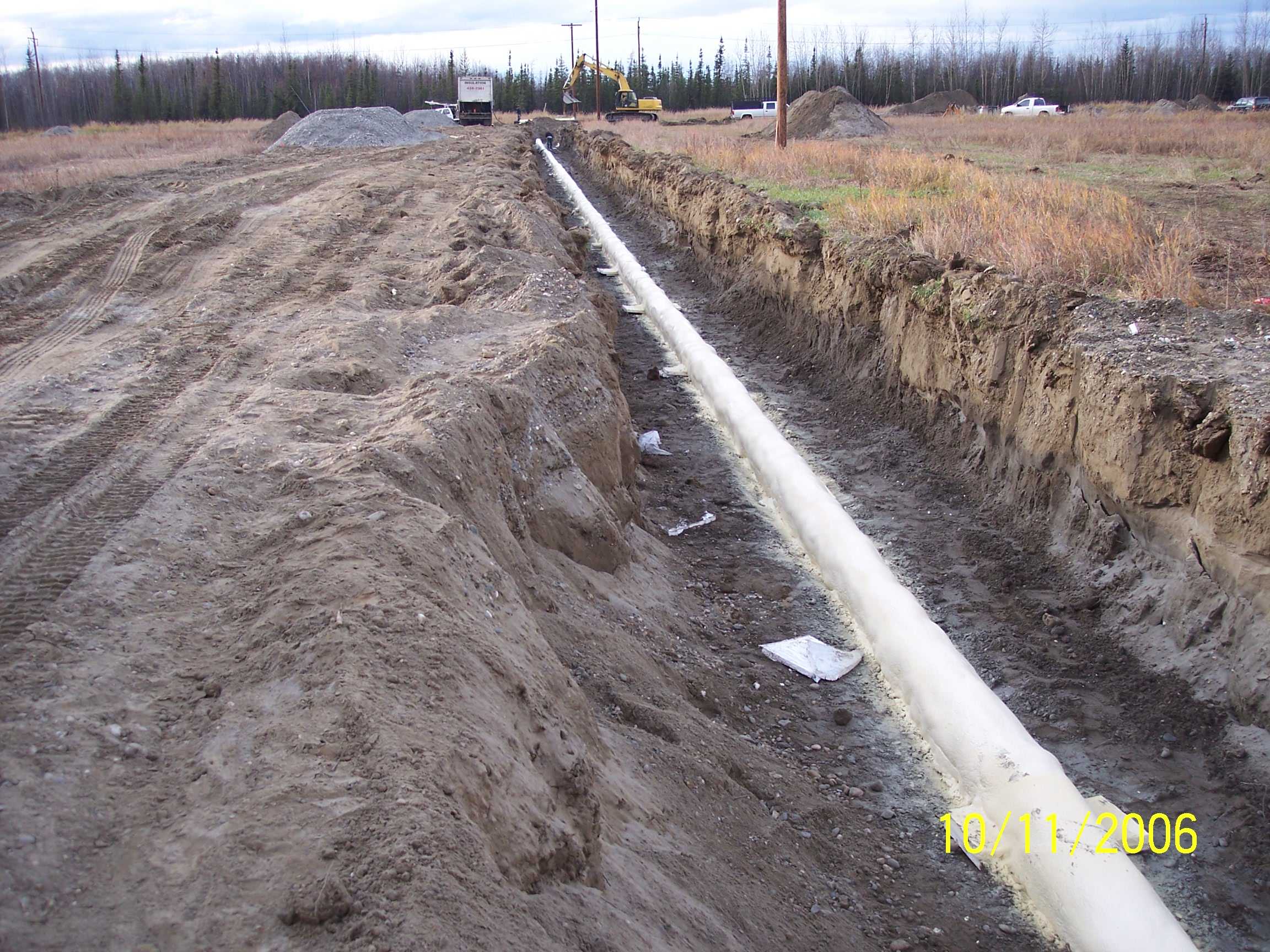
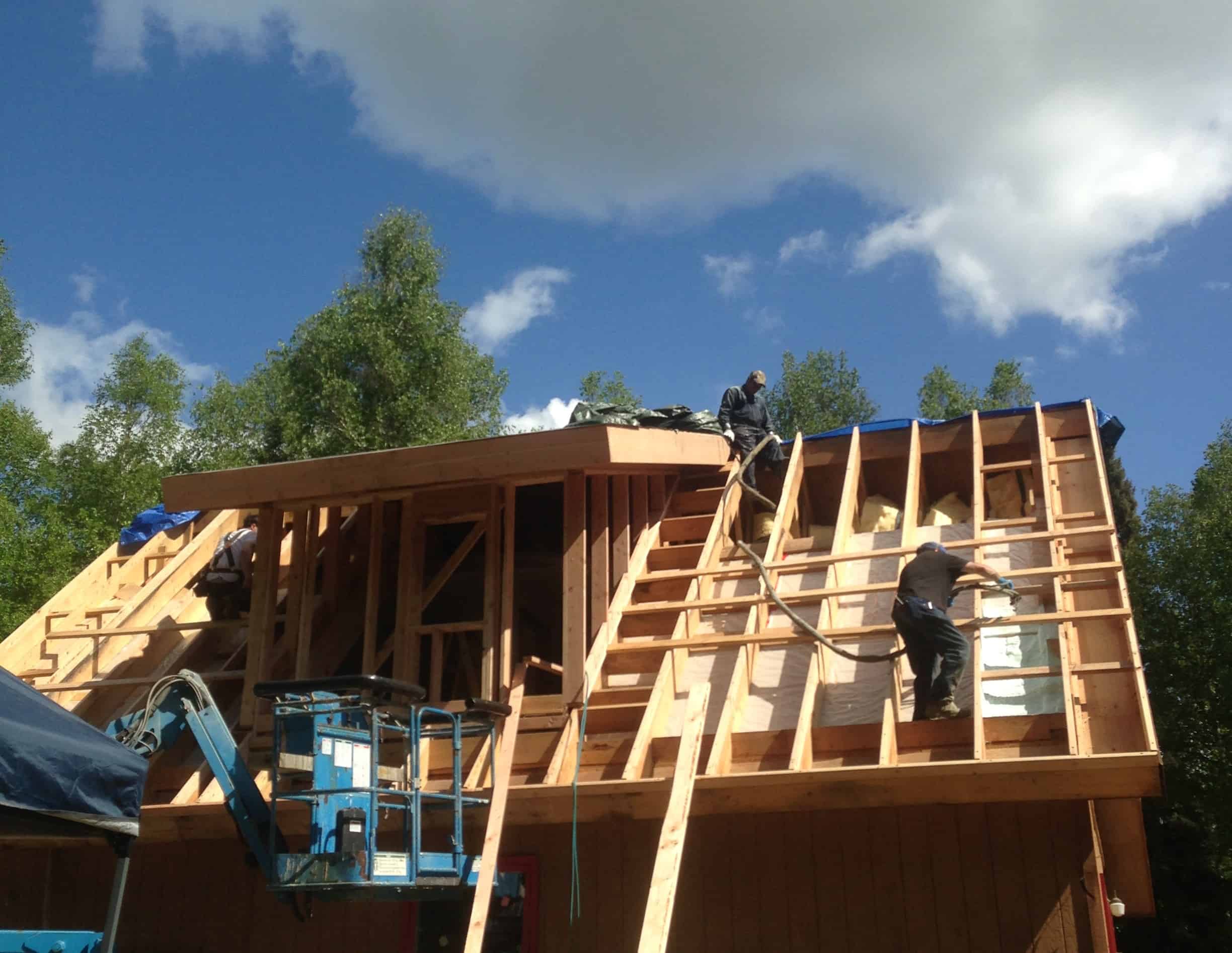
The Company Name Evolves
It being well accepted that polyurethane foam is the best insulation known to man and at the same time foreseeing vermiculite was on its way out as insulation, owners of Vermiculite Contractors made a slight name adjustment to Vermiculite Technicians, which evolved into Vertecs Corporation.
The Rocheleau family bought out the Alaska holdings of Vertecs Corp in 1978 and changed the name to Vertex Insulation Inc.
As for the company’s membership with Alaska General Contractors, being a part of the organization has facilitated networking with other contractors, safety training, contract documentations and access to plans and bid documents, he added.
Insulation Services
We insulate many complete houses with spray polyurethane foam, foam is the one true investment in your home that will pay you back. On existing houses spraying three- to-four inches of foam where floor joists meet the outside wall can cut down on fuel bills, Rick said. Foam is also a vapor barrier, eliminating the need for visqueen or plastic barriers.
Vertex’s president is proud no job is too small or too large for his company.
“We insulate underground piping, tanks, basements, walls, roofs – if it can be insulated, we most likely have insulated it,” he said.
The coolest new innovation for Vertex is the advent of “Slabjacking”. This is especially popular in Fairbanks given the instability of the soils. Which causes concrete slabs to often crack and sink leaving them looking like old ancient greek ruins as grass and flowers grow through the cracks.
However now all of that has changed as Vertex can come out and ‘surgically’ inject polyurethane underneath the concrete and raise it back up to its originally level standing.
Sidewalks and driveways are starting to be resurrected everywhere now that this new method has proven very effective.
Vertex finished in 2010 a four-year project re-insulating all the remote gate and check valves on the Trans Alaska Pipeline stretching from Prudhoe Bay to Valdez. The original insulation had been on the valve since construction and needed to be removed to inspect all parts of the valve. A properly operating valve is vital in isolating problems within a certain section of the oil pipeline.
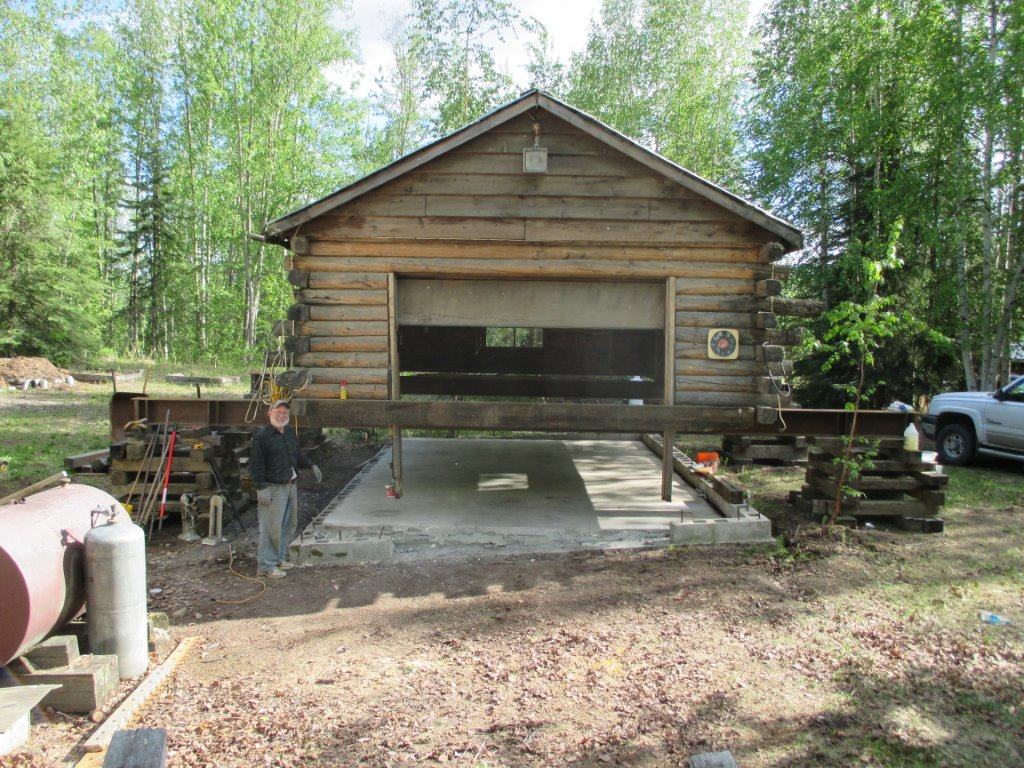
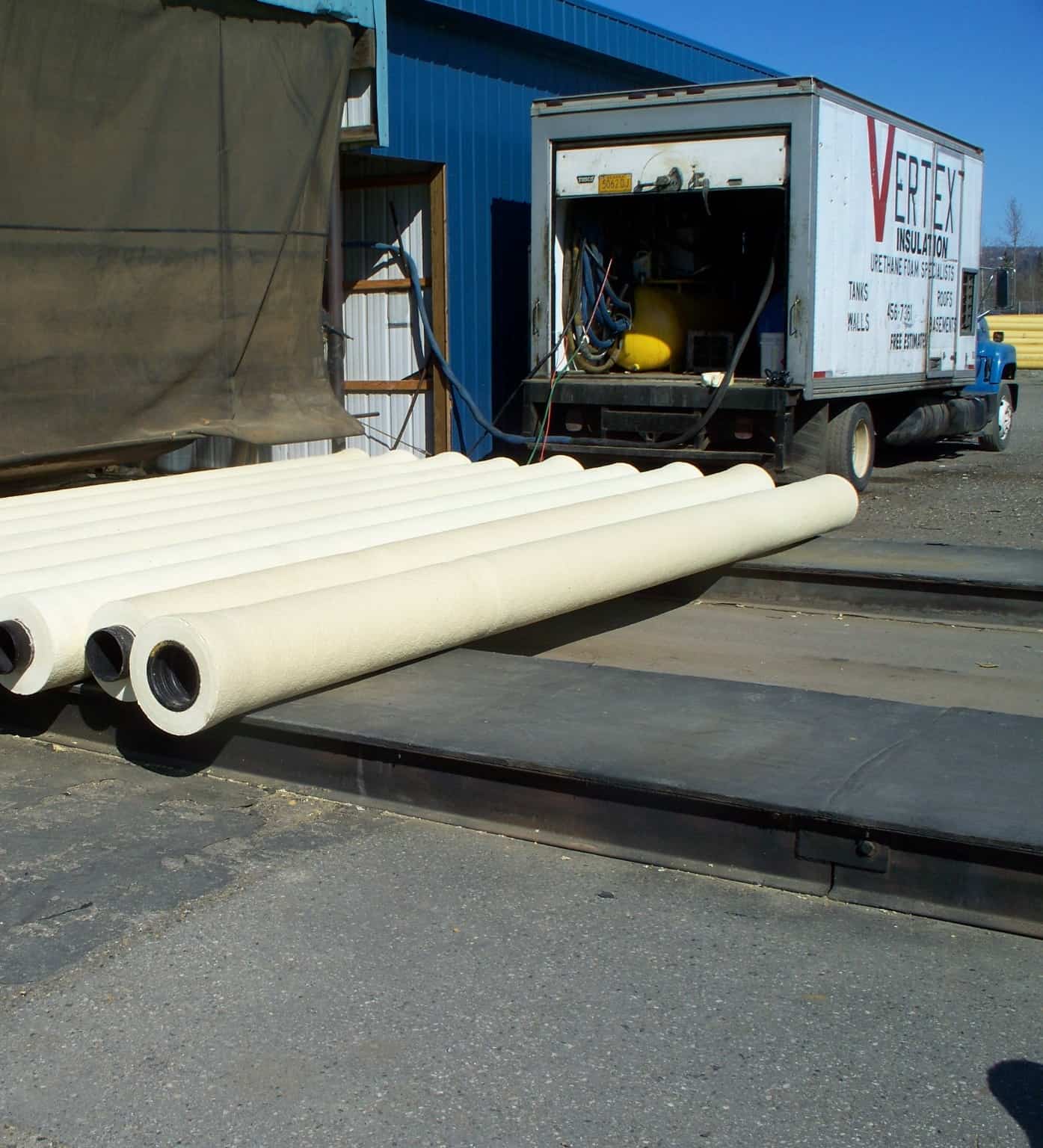
Always on a quest to conserve energy, Vertex took part in a challenging and environmentally friendly project with the Cold Climate Housing Research Center constructing an earth bermed home in the village of Anaktuvuk Pass.
Located north of the Brooks Range at an elevation of 2,200 feet, the village is the last remaining settlement of the Nunamiut Inupiat Eskimo in Alaska. According to CCHRC the cost of constructing a conventional 1,000 square foot house can approach $850,000.
Using this innovative method of construction a 1,000 square foot energy efficient house can be built for less than $180,000. Using a greener more environmentally friendly foam and implementing a reverse type of construction walls are constructed half underground, they are sheathed with plywood on the inside and nine inches of foam sprayed on the exterior of the house, plus a polyurea coating.
“There’s no siding. It’s sprayed nice and smooth,” Rick said of the earth bermed home which are traditional to the Nunamiut people.
And in place of the standard petro-product polyurethane, Vertex is using an innovative spray foam of which 20-percent of the total product is composed of soybean oil or recycled plastic bottles.
Funded by the Tagiugmiullu Nunamiullu Housing Authority (TNHA) the project plans to build additional homes in Anaktuvuk Pass and elsewhere in the North Slope Region. As this house demonstrates what is possible for construction in areas of rural Alaska. The project is getting national attention, Rick said.
It may not draw national recognition, but Vertex’s work in cutting energy costs in residential housing is equally important.
